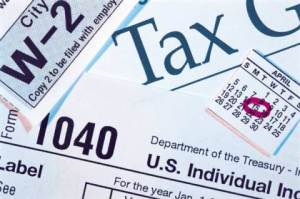 Today’s top story: 7 things college freshmen don’t need – and 10 they do. Also in the news: Stocking up for school can be eco-friendly and economical, what to do when back to school bites you in the budget, and how to get rid of your back taxes.
Today’s top story: 7 things college freshmen don’t need – and 10 they do. Also in the news: Stocking up for school can be eco-friendly and economical, what to do when back to school bites you in the budget, and how to get rid of your back taxes.
7 Things College Freshmen Don’t Need — and 10 They Do
Skip the giant television.
Stocking Up for School Can Be Eco-friendly — and Economical
Looking for freebies and bargains.
What to Do When Back to School Bites You in the Budget
Prioritize.
Tax Relief: How to Get Rid of Your Back Taxes
Getting your tax bill back under control.
 Today’s top story: 6 late-filing tax mistakes you need to avoid. Also in the news: Why paying taxes by credit card probably isn’t a good idea, collection agencies are getting another shot at your back taxes, and filing a tax extension to buy more time.
Today’s top story: 6 late-filing tax mistakes you need to avoid. Also in the news: Why paying taxes by credit card probably isn’t a good idea, collection agencies are getting another shot at your back taxes, and filing a tax extension to buy more time. 